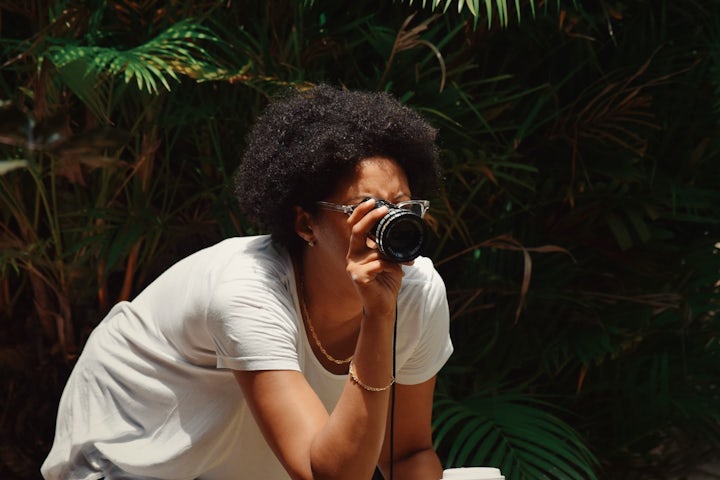
Director Danae Grandison on pitching, community, and finding her place in film.
Interviews • 4min read
Interviews • Written by Genero
After he was commissioned by HP to create a short film for their ‘Keep Reinventing’ campaign, we caught up with Genero director Joshua Lipworth to chat about putting the film together, shooting on 35mm film and his fascinating subject: Neil Harbisson.
Shooting on 35mm film… creates a very different kind of discipline on set. It forces everyone to focus more clearly and really dictates the way in which you work.
The Colour of Sound - HP UK
We wanted to interpret the character’s journey through the use of new film making techniques because for once, it’s motivated! Most of the film was shot on 35mm film because we thought this was closest to how the human eye sees, but to mirror Neil’s experience of the world, we also shot on a custom infra-red camera and a heat-sensing camera (which unfortunately didn’t make the cut).
The style in which we shot this was very much dictated by shooting on 35mm film, which creates a very different kind of discipline on set. It forces everyone to focus more clearly and really dictates the way in which you work. No extra-long takes, no roll on rehearsals and it makes you cut the film in your head with more clarity.
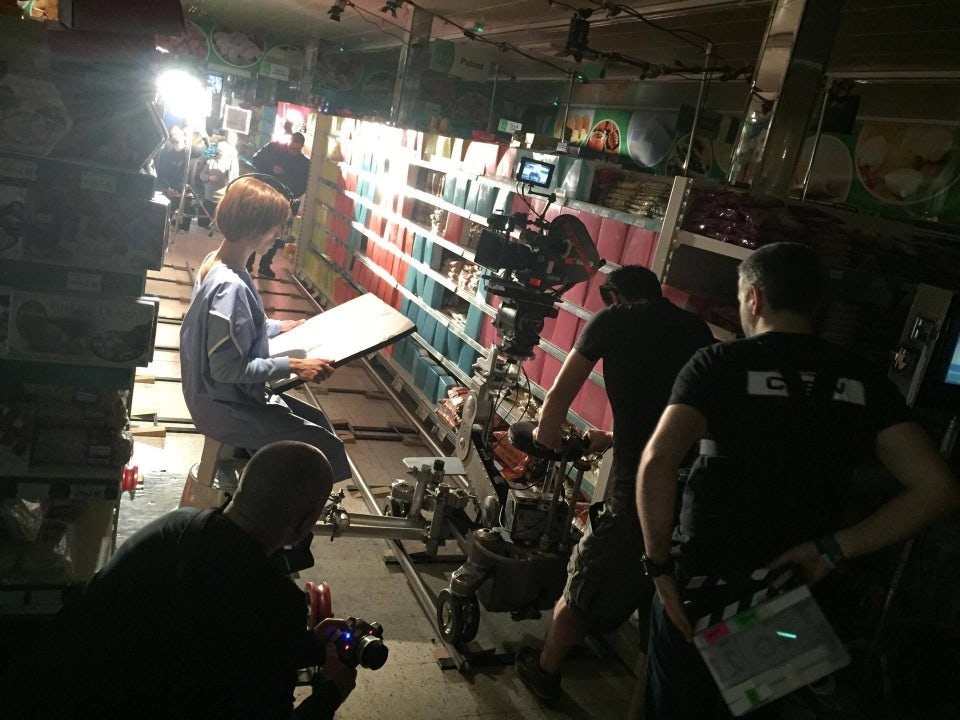
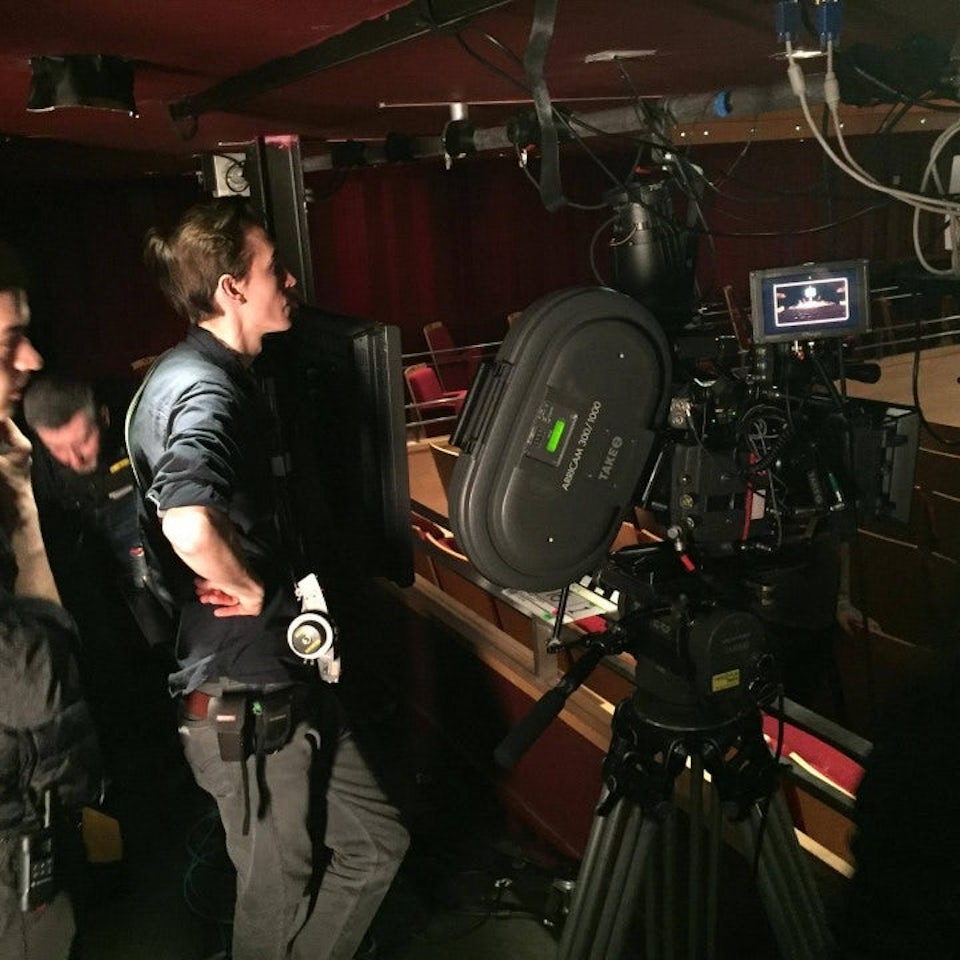
Neil’s story captured my imagination when I heard about it at a lecture. I went home and did research and the more I read the more I wanted to tell his story because it’s a unique way of viewing the world. I’m very visual and so a transformation story with sight at the heart of it really appealed to my sensibilities.
We wanted to create two intertwined stories each with their own defined look. The post-op world of colour and the pre-op world of black and white – the finale in false colour infra-red is supposed to represent the next phase in Neil’s life. Neil hears colours individually and then his brain adds them together to form a chord which informed the ‘look’. We kept the lighting quite natural and chose single colours (and indeed Neil as the embodiment of colour) to pop out.
For Neil; A telephone ringing sounds green so colour is to sound as sound is to colour. So creating this world in the music was important – we took the underlying principles and applied them to create a score that very roughly reflected the colours of the images. We didn’t want to be too restrictive because the most important thing to advance was the story, not the theory behind Synesthesia.
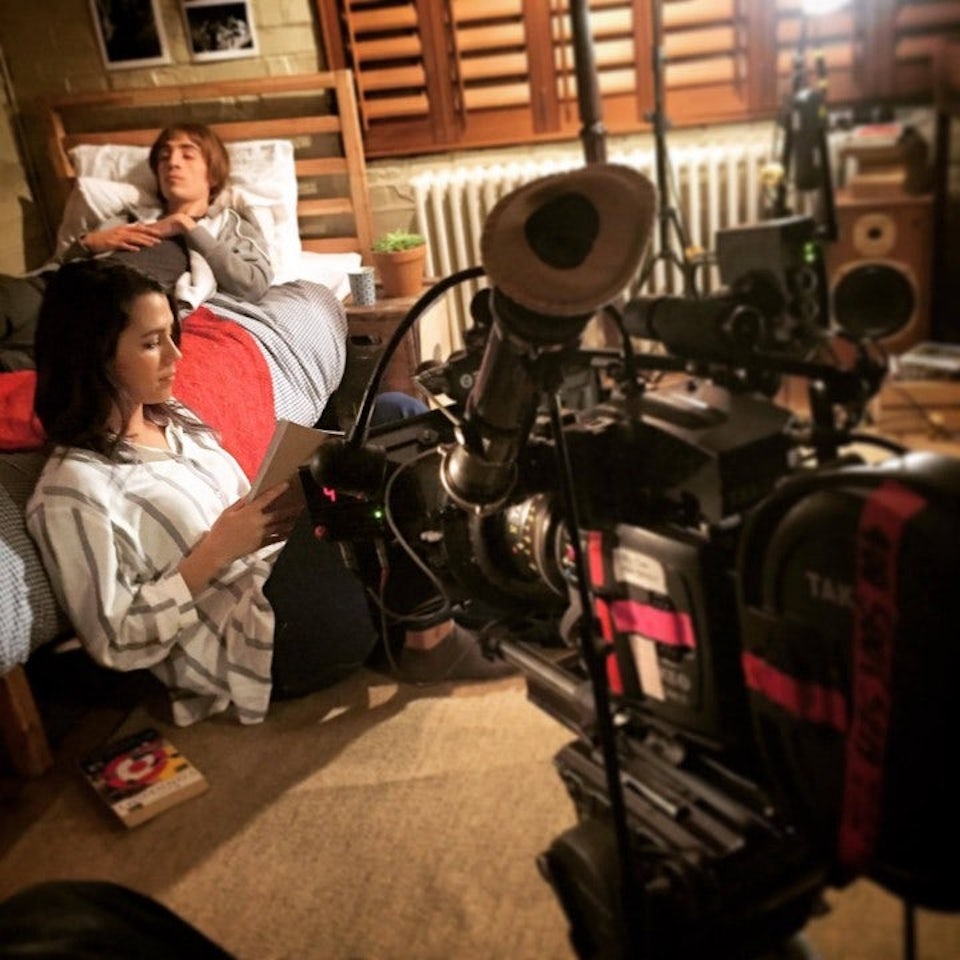
We shot on a 35mm Arricam LT for sync sound and steadicam work. We shot on the 35mm Arricam 435 for the slow-motion parts because it makes a lot of noise you can’t use it for dialogue. We then used a custom modded IR Red Dragon, with various filters to achieve a weird infra-red effect. Finally, we also used a FLIR 1TK heat-sensing camera, which was completely different to anything any of us had used before because you are exposing the image with heat rather than light. The lenses we used were Cooke S4’s which the DOP chose after multiple tests. We shot with mostly tungsten lights because we were shooting on Kodak Vision 3 500 Tungsten stock.
Neil is re-defining what it means to be human. He can now see beyond human visual perception which means that he’s expanding human knowledge. It’s hard to get your head around!
A big thanks to Josh for chatting with us!

Interviews • 4min read
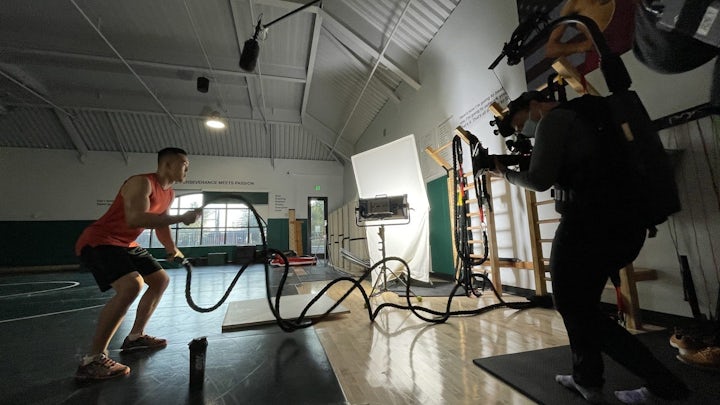
Interviews • 4min read